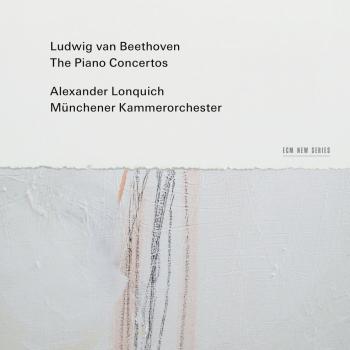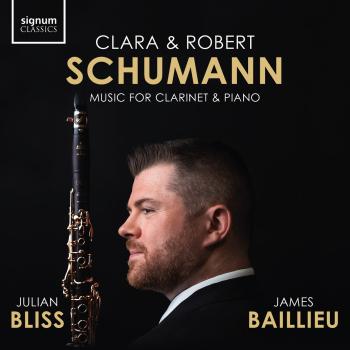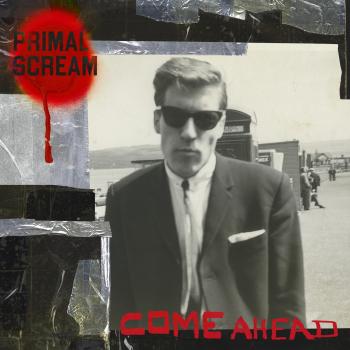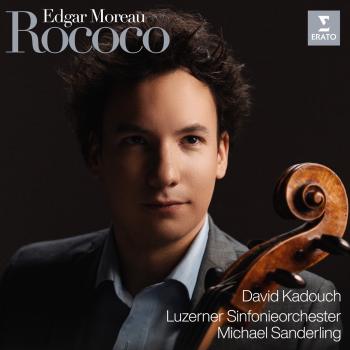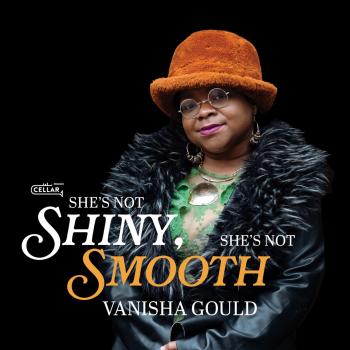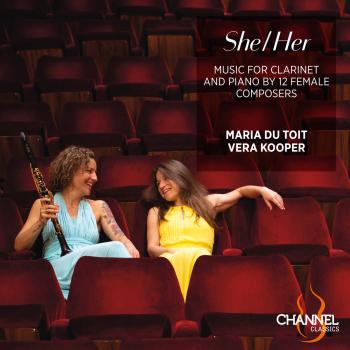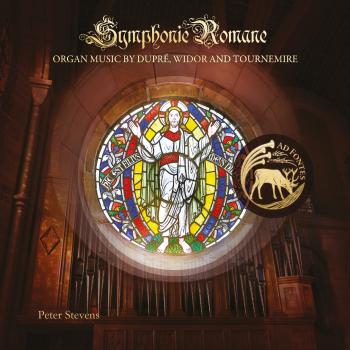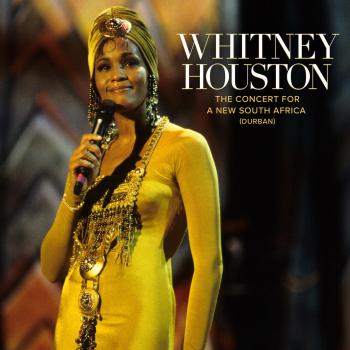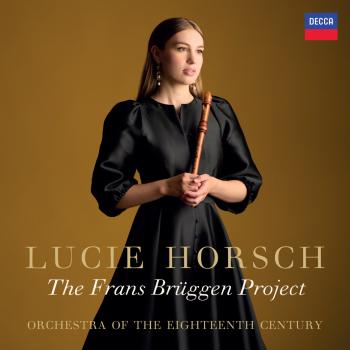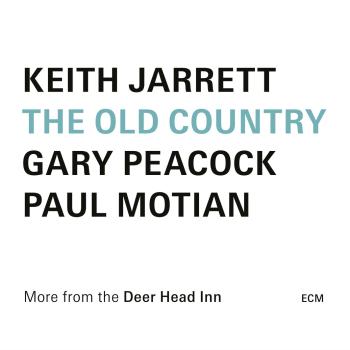
Schubert, Shostakovich & Pártos Amihai Grosz & Sunwook Kim
Album info
Album-Release:
2020
HRA-Release:
25.09.2020
Label: Alpha
Genre: Classical
Subgenre: Chamber Music
Artist: Amihai Grosz & Sunwook Kim
Composer: Dmitri Shostakovich (1906-1975), Franz Peter Schubert (1797-1828), Oedoen Partos (1907-1977)
Album including Album cover Booklet (PDF)
- Ödön Pártos (1907 - 1977):
- 1 Yizkor (In Memoriam) 10:55
- Franz Schubert (1797 - 1828): Arpeggione Sonata in A Minor, D. 821:
- 2 Arpeggione Sonata in A Minor, D. 821: I. Allegro moderato 12:07
- 3 Arpeggione Sonata in A Minor, D. 821: II. Adagio 04:34
- 4 Arpeggione Sonata in A Minor, D. 821: III. Allegretto 09:37
- Dmitri Shostakovich (1906 - 1975): Viola Sonata in C Major, Op. 147:
- 5 Viola Sonata in C Major, Op. 147: I. Moderato 09:39
- 6 Viola Sonata in C Major, Op. 147: II. Allegretto 07:32
- 7 Viola Sonata in C Major, Op. 147: III. Adagio 15:54
Info for Schubert, Shostakovich & Pártos
Fascinated by the viola, which he chose at the age of eleven after learning the violin for six years, Amihai loves the sound of his instrument, which is so close to the human voice. He also likes the ambivalence of its timbre, midway between the violin and the cello, which in a sense reflects his own musical education in Israel, with its combination of Mediterranean influences and Russian and Germanic traditions. Initially a quartet musician and founding member of the famous Jerusalem Quartet, Amihai Grosz now pursues a solo career while holding the post of principal viola of the Berliner Philharmoniker.
For this first solo album, he joins forces with the pianist Sunwook Kim, the first Asian to win the Leeds International Piano Competition – in 2006, aged just eighteen. Together they present a programme coupling Schubert, with the famous Arpeggione Sonata – named after the quickly obsolescent instrument for which it was written, a cross between the guitar and the cello; Shostakovich, with the Viola Sonata op.147, completed in 1975, only a few weeks before the Russian composer’s death; and Yizkor (In memoriam) by the Hungarian-Israeli composer Ödön Pártos (1907-77). Amihai Grosz plays a magnificent Gasparo da Salò viola of 1570.
Amihai Grosz, violin
Sunwook Kim, piano
Amihai Grosz
born in 1979 in Jerusalem, Israel, initially learned to play the violin at the age of 5, before switching to the viola at age 11. In Jerusalem, he was taught by David Chen, later by Tabea Zimmermann in Frankfurt and Berlin as well as in Jerusalem by Haim Taub, who had a formative influence on him. Between 1993 and 1999, Amihai Grosz received scholarships through the American-Israeli Cultural Foundation and was a member of the “Young Musicians Group” of the Jerusalem Music Center, a program for outstanding young musical talents. This gave him the opportunity, at a very young age, to work with renowned artists such as Isaac Stern or the Guarneri Quartet. As early as 1996, he won 1st prize in the Braun Roger Siegel Competition of the University of Jerusalem. In 2007, he received the renowned Gottesman Prize for Viola in the Aviv Competition, the most prominent competition in Israel (comparable to the ARD Competition in Germany).
The fascination with the viola, which he consciously chose as his instrument as a child, stems from the instrument’s ambivalence. According to Grosz, its sound is the closest thing to the human voice, and can at times sound like a violin, at other times like a violoncello; its timbre is not defined. Grosz’ musical background corresponds to this “non-defined” aspect: In Israel, there was not only one school of teaching; instead, young musicians were shaped by Mediterranean influences and by Russian and German traditions, while their curiosity to discover new things was constantly fostered.
For Amihai Grosz, chamber music is the foundation of his work. In 1995, together with the other section leaders from the university orchestra of the Jerusalem Music Center, he founded the Jerusalem String Quartet, one of the most interesting young quartets around today. From the very beginning, the four musicians aimed to create a distinctive sound, to find a language with its own individual character. The Jerusalem Quartet, which early on won the Borletti Buitoni Trust Award, gained its central musical stimuli in master classes taught by Isaac Stern, the LaSalle Quartet, the Emerson String Quartet and by Frank Peter Zimmermann. Every year, the Quartet awards a composition commission to an Israeli composer. The ensemble gives concerts at all major international venues - the Tonhalle Zurich, the Wigmore and the Queen Elizabeth Hall in London, the Concertgebouw in Amsterdam and the Sydney Opera House, to name just a few. The Quartet has an exclusive contract with the label Harmonia Mundi. A number of recordings have been awarded international prizes like the BBC Music Magazine chamber award or the ECHO Classic Award 2009.
Amihai Grosz works, in solo and in chamber music projects, with artists such as Yefim Bronfman, Emmanuel Pahud, Mitsuko Uchida, Oleg Maisenberg, Janine Jansen, Julian Rachlin and David Geringas; he performs in concert houses and at festivals all over the world, including at the Jerusalem Chamber Music Festival, Delft Festival, Salon Festival and Verbier Festival, at the BBC Proms, in the Bahnhof Rolandseck, at the Utrecht International Chamber Music Festival, at Spectrum Concerts Berlin and at the West Cork Chamber Music Festival.
After 10 years of professional work, 2010 marks the start of something new for Amihai Grosz: Beginning in the 2010/11 season, Grosz is the Principal Violist with the Berliner Philharmoniker, an orchestra with which he has worked on various projects in recent years.
Additionally, Amihai Grosz intends to devote more of his time to his solo career. Until now he could be heard playing with internationally renowned orchestras such as Daniel Barenboim’s West-Eastern Divan Orchestra or the Jerusalem Symphony Orchestra. In the upcoming season, concerts are planned at the Valencia Opera House, in the Concertgebouw in Amsterdam, the Megaron in Athens and with the Israel Philharmonic Orchestra.
Amihai Grosz plays a Gaspar-da-Salo viola from the year 1570, which is a lifelong loan made available to him by a private collection.
Booklet for Schubert, Shostakovich & Pártos


